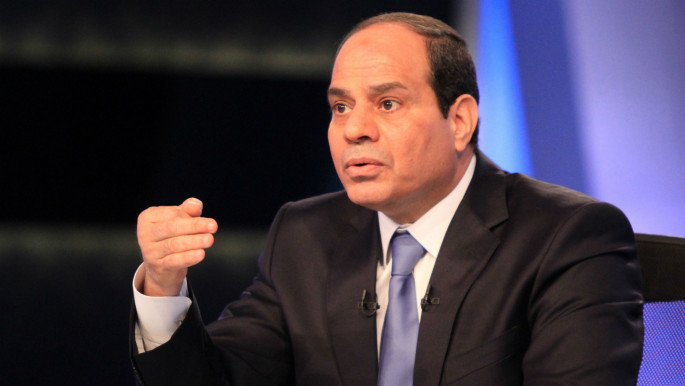
President Sisi uses conspiracy to explain Egypt's political mess
Foreign agents, people of evil, hellish schemes and hidden hands have all banded together to bring down Egypt, the country's general-turned-president Abdel Fattah al-Sisi has claimed.
Sisi's latest bizarre conspiracy theory came on Friday, as thousands of angry protesters rallied across the country to call for "the downfall of the regime" after Egypt recently announced that it was handing over two Red Sea islands to Saudi Arabia.
Meantime the head of state was soaking up the sun on the Red Sea, opening up a tourist resort.
"There's a hellish scheme going on inside the country, which some people may not have noticed that is aimed at sewing discord among Egyptians," Sisi told a crowd.
While Sisi cut the ribbon, riot police fired tear gas and battered protesters in Cairo and Alexandria.
"I am not worried about foreign conspiracies, however, I am very concerned about the plots of devils inside the country," he added.
Talk of devils and demons hatching secret plans have been common parlance of the Sisi circle, during the many crises the regime has met since Egypt's first democratically elected president Mohammad Morsi was overthrown in a military coup in 2013.
 |
|
| Many Egyptians have grown tired of what they see as Sisi's heavy-handedness [Getty] |
Sisi recently blamed "evil conspirators", Facebook and the press for the brutal torture murder of Italian student Giulio Regeni denying widespread and credible reports that Egypt's notoriously brutal police force was behind the crime.
"The conspiracy by the people of evil, they have been at work, and are still working," he said. He added thathe would not identify the evil doers.
"The moment [Regeni's] death was announced, people from among us said the security services did it on social networks and media professionals," he said during one of Sisi's many long-winded rambling speeches in colloquial Arabic.
The 28-year-old PhD student who was researching Egyptian trade unions went missing in Cairo on the fifth anniversary of the 2011 uprising.
His mutilated body was found a week later at the side of a road on Cairo's outskirts, suggesting he died at the hands of the Egyptian regime's notorious torturers.
Last year, when a bomb ripped through a packed Russian passenger jet between Egypt's Sharm al-Sheikh seaside resort to Saint Petersburg, authorities were quick to deny any foul play.
Sisi later would eventually cave in to overwhelming evidence that Islamic State group-affiliated militants planted the bomb which killed all 224 passengers.
"Has terrorism ended? No, it has not, but it will if we unite. Whoever downed the Russian plane, what did he mean? He meant to hit tourism, and to hit relations with Russia," Sisi said in a televised speech.
He has also accused the banned Muslim Brotherhood - a "foreign-funded operation" and the "world's strongest secret organisation" according to the president - for the insurgency in the Sinai Peninsula.
Unrest in the province has grown worse since Sisi took power and scorched earth policies from the army in the Sinai has led to the growth of IS militants.
Last week, the latest issue of the jihadi group's online magazine Dabiq featured the Brotherhood's leader Morsi on the front page. It described him as an "apostate", and ruled out any connection between the two groups.
The militants described the Muslim Brotherhood as "a devastating cancer" that "emerged, mutated, and spread, attempting to drown the entire Ummah in apostasy".
It seems that we won't have to wait long until Sisi pins the blame on "the other" again for his bad governance and dismal human rights record.





 Follow the Middle East's top stories in English at The New Arab on Google News
Follow the Middle East's top stories in English at The New Arab on Google News


